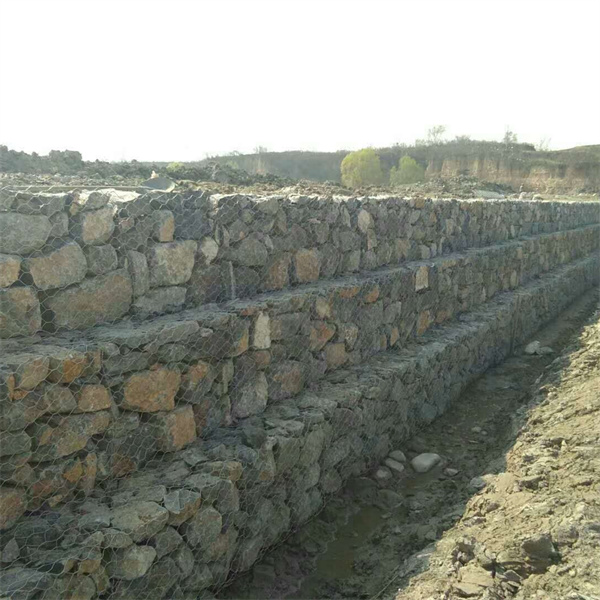تشرینی یەکەم . 06, 2024 02:21 Back to list
gabion steel mesh factory
Understanding Gabion Steel Mesh An Overview of Its Production and Uses
Gabions, often used in civil engineering and landscaping, are wire mesh containers filled with rocks, concrete, or soil, designed to create sturdy structures for erosion control, retaining walls, and decorative features. At the heart of these gabion structures is the steel mesh, which plays a crucial role in providing strength and durability. This article will delve into the production of gabion steel mesh, its properties, and its applications.
Production of Gabion Steel Mesh
The manufacturing process of gabion steel mesh involves several key stages, ensuring that the final product meets industry standards for strength and durability. The raw material typically used is low carbon steel wire, which is known for its high tensile strength and malleability. The process begins with the drawing of steel wire, which is pulled through a series of dies to achieve the desired diameter. This wire is often coated with a layer of galvanization to enhance corrosion resistance, which is vital for outdoor applications.
After the wire is prepared, the next step is weaving it into mesh. The most common types of weave used in gabion production are the hexagonal and square patterns. These patterns provide the necessary structural integrity while allowing for flexibility and ease of filling. Automated machines are often employed in this stage to ensure precision and repeatability, thereby maintaining consistent quality across batches.
Once the mesh is created, it is cut into specific sizes according to project requirements. Accessories such as lacing wire or clips may also be included to ensure the gabion baskets hold their shape during filling and installation. Quality control tests are conducted throughout the production process, checking factors such as tensile strength and mesh integrity, to guarantee that the final products meet the requisite engineering standards.
Properties of Gabion Steel Mesh
Gabion steel mesh has several notable properties that make it an ideal choice for various applications. Firstly, its corrosion resistance, especially when galvanization is applied, ensures a long lifespan even in harsh environmental conditions. Secondly, the flexibility of the mesh allows it to absorb and dissipate energy from water flow, making it particularly effective in erosion control and riverbank stabilization.
gabion steel mesh factory

Moreover, the open structure of the mesh allows for vegetation growth, which can further enhance the stability of the gabion system over time. This ecological benefit contributes to the aesthetic appeal of gabion structures, providing a natural look that blends seamlessly into surroundings.
Additionally, the mesh is relatively lightweight, making it easier to transport and install compared to traditional solid materials. This characteristic not only reduces labor costs but also minimizes environmental impact during construction.
Applications of Gabion Steel Mesh
Gabion steel mesh is utilized in a variety of applications ranging from civil engineering to landscaping. In civil engineering, gabions are commonly used for riverbank protection, retaining walls, and drainage systems. Their ability to control water flow and reduce erosion has made them a popular choice in areas prone to flooding or landslides.
In landscaping, gabions serve as decorative elements, providing visual interest in parks, gardens, and urban developments. They can be configured into benches, planters, or boundary walls, offering both functional and aesthetic benefits. The use of natural stones within gabions also allows for creativity in design, with various colors and textures available based on regional stone types.
Conclusion
As the demand for sustainable and effective construction solutions continues to grow, gabion steel mesh stands out as a versatile and environmentally friendly option. Its strong production process, coupled with its desirable properties and wide range of applications, positions it as an essential material in modern engineering and landscaping projects. Understanding the intricacies of gabion steel mesh manufacturing can empower builders and designers to make informed choices, resulting in structures that are not only functional but also harmonious with their surroundings. Whether for erosion control, effective drainage, or aesthetic enhancement, gabion steel mesh remains a significant component in contemporary construction practices.
-
Why PVC Coated Gabion Mattress Is the Best Solution for Long-Term Erosion Control
NewsMay.23,2025
-
Gabion Wire Mesh: The Reinforced Solution for Modern Construction and Landscape Design
NewsMay.23,2025
-
Gabion Wall: The Flexible, Seismic-Resistant Solution for Modern Landscaping and Construction
NewsMay.23,2025
-
Gabion Wall Solutions: The Durable, Decorative, and Affordable Choice for Every Landscape
NewsMay.23,2025
-
Gabion Basket: The Durable and Flexible Alternative to Traditional Retaining Walls
NewsMay.23,2025
-
Gabion Basket: The Proven Solution for Slope Stability and Flood Control
NewsMay.23,2025
-
Versatility of Chain Link Fence Gabion
NewsMay.13,2025






